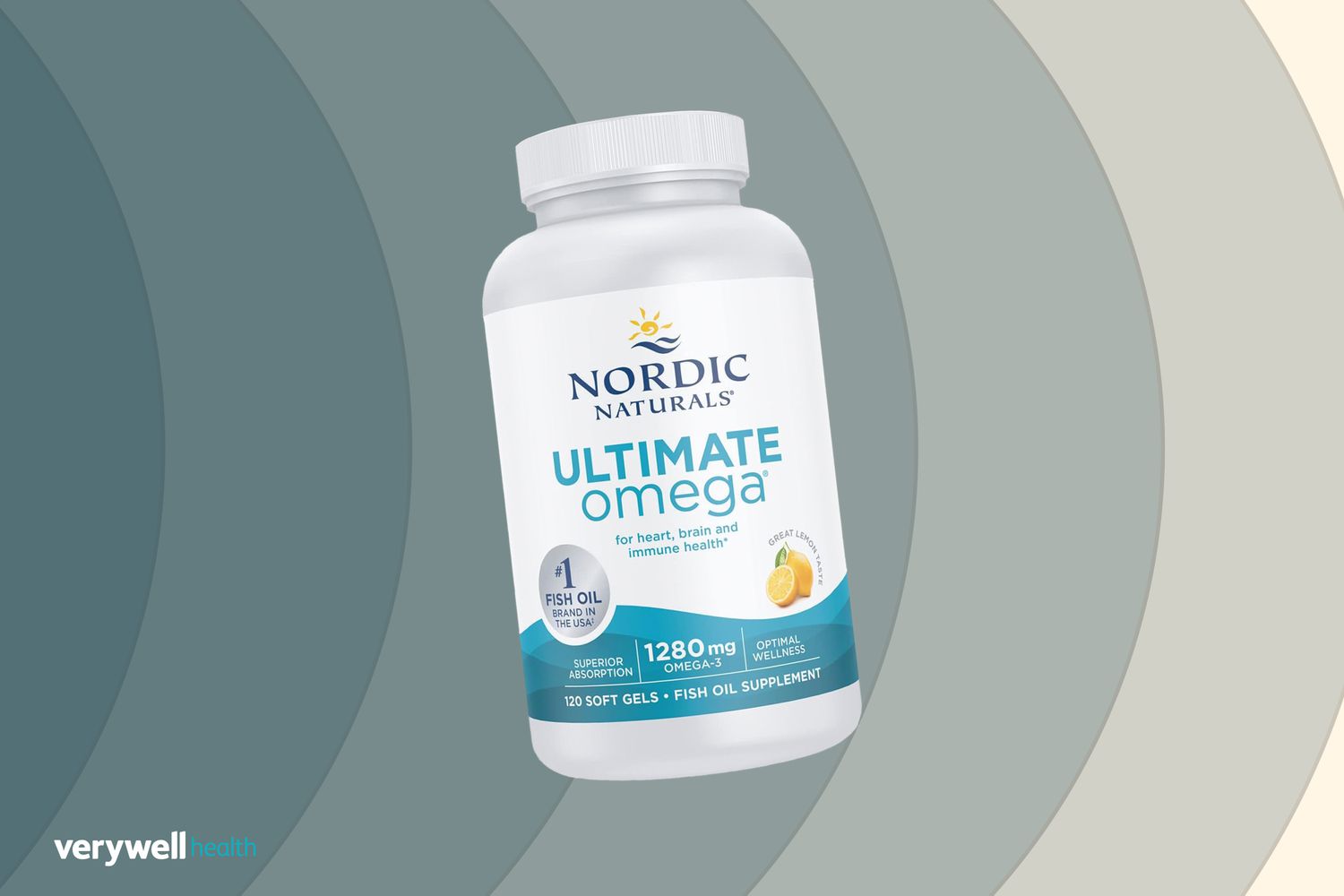9 Best Men’s Vitamins for Optimal Health and Well-Being
Navigating the world of vitamins can feel overwhelming, especially when you want the best for your health. With countless options on the market, how do you know which vitamins are truly essential for men? Whether you’re looking to boost energy, support muscle health, or improve overall wellness, the right vitamins can make a significant difference.
In this guide, you’ll discover the 9 best vitamins for men that cater to various health needs. From enhancing your immune system to promoting heart health, these vitamins are carefully selected to help you achieve optimal health. Ready to take the guesswork out of your supplement routine? Let’s dive in and explore the top picks that can transform your well-being.
Unveiling the List of 9 Best Men’s Vitamins
In this section, we dive into the top vitamins that can transform your health. Discover which vitamins made the cut and why they’re essential for men’s well-being.
Criteria for Selection
The vitamins were chosen based on several factors. First, scientific backing ensures that each vitamin has proven benefits. Secondly, ingredient quality is paramount; we selected products with high-quality, natural ingredients. Thirdly, user reviews and ratings offer real-world effectiveness. Lastly, we considered brand reputation and trustworthiness, selecting from brands known for their reliability and transparency.
Importance of Consulting Healthcare Providers
Always consult with your healthcare provider before starting any new supplement regimen. A healthcare professional can help tailor vitamin choices to your specific health needs and conditions. They can identify potential interactions with medications you’re currently taking. Consulting a professional ensures that you’ll get the maximum benefit from the vitamins while minimizing risks.
Vitamin D: The Sun’s Gift
Your body produces Vitamin D when exposed to sunlight, making it a unique and vital nutrient.
Benefits for Bone Health and Immune Function
Vitamin D is essential for bone health. It helps your body absorb calcium, which strengthens bones and teeth. A deficiency can lead to bone issues like osteoporosis. On the immune front, Vitamin D boosts your defense system, reducing the risk of infections and autoimmune diseases. Studies show it can lower the severity of colds and flus.
Recommended Dosages and Sources
Experts recommend 600 IU of Vitamin D daily for most adults. Older adults might need up to 800 IU. Natural sources include fatty fish, such as salmon and mackerel, and eggs. Fortified foods like milk, cereal, and orange juice also contain Vitamin D. If you’re not getting enough from these sources, consider a supplement. Always consult your healthcare provider before starting a new regimen.
Vitamin C: The Immunity Booster
Vitamin C plays a critical role in keeping your immune system strong and resilient.
Roles in Disease Prevention and Recovery
Supports Immune Function: Vitamin C stimulates white blood cell production, helping your body fend off infections and illnesses.
Reduces Severity of Illness: High vitamin C intake can lessen the duration and intensity of the common cold, according to the National Institutes of Health.
Promotes Healing: It accelerates wound healing by supporting collagen synthesis, essential for tissue repair.
Acts as an Antioxidant: Vitamin C fights free radicals, reducing oxidative stress and lowering the risk of chronic diseases.
Natural Sources and Supplement Forms
Eat Citrus Fruits: Oranges, lemons, and grapefruits are excellent natural sources of vitamin C.
Consume Vegetables: Broccoli, bell peppers, and spinach also contain high levels of this vital nutrient.
Use Supplements: Available in tablets, chewables, and powdered forms, supplements are a convenient way to meet your nutritional needs.
Check Labels: When choosing supplements, look for products with verified quality, such as those labeled with NSF or USP certifications.
Consuming a balanced mix of natural sources and supplements can help ensure you meet your daily vitamin C requirements for optimal health.
Vitamin B12: The Energy Enhancer
Vitamin B12 is a powerhouse for men’s health, especially when it comes to boosting energy and maintaining optimal bodily functions.
Significance for Metabolism and Red Blood Cells
Vitamin B12 plays a crucial role in your metabolism by aiding in the conversion of food into energy. It’s essential for the formation of red blood cells, which transport oxygen throughout your body, preventing fatigue and anemia. This vitamin also supports brain health and cognitive function, helping you stay sharp and focused daily. Studies support its pivotal role in reducing symptoms of depression (PubMed).
Best Sources and Deficiency Signs
You can find Vitamin B12 in several animal-based foods like meat, fish, dairy products, and eggs. For vegetarians and vegans, fortified cereals and plant-based milk are excellent alternatives. Vitamin B12 deficiency can lead to symptoms such as weakness, tiredness, pale skin, heart palpitations, and shortness of breath. It can also cause memory problems, mood changes, and trouble walking. If you notice these signs, consulting a healthcare provider for proper diagnosis and supplementation is wise.
Omega-3 Fatty Acids: The Heart Protector
Omega-3 fatty acids are essential for men’s health, playing a crucial role in heart and brain function.
Benefits for Heart Health and Cognitive Function
Omega-3s reduce the risk of heart disease by lowering blood pressure and triglycerides. They improve arterial health, promoting better blood flow. Furthermore, Omega-3s support cognitive function, aiding in memory retention and mental clarity. Studies suggest that these fatty acids can help reduce symptoms of depression and anxiety.
Ideal Sources and Optimal Intake
Natural sources include fatty fish like salmon, mackerel, and sardines. Plant-based options like chia seeds, flaxseeds, and walnuts are also rich in Omega-3s. Experts recommend consuming at least two servings of fatty fish per week or considering high-quality supplements. Always consult with a healthcare provider for personalized dosage guidance.
Magnesium: The Multitasker Mineral
Magnesium is crucial for overall men’s health. As a multitasking mineral, it offers significant benefits that boost muscle function and improve sleep quality.
Advantages for Muscle Function and Sleep Quality
Magnesium supports muscle function by aiding in muscle contraction and relaxation. This helps reduce the risk of cramps and spasms, particularly during intense physical activity. It also plays a key role in energy production, ensuring your muscles perform optimally during workouts. Furthermore, magnesium is vital for maintaining healthy sleep patterns. It helps regulate neurotransmitters, promoting relaxation and improving the quality of your sleep.
Foods Rich in Magnesium and Supplementation Tips
Incorporate magnesium-rich foods into your diet to ensure adequate intake. Excellent sources include leafy greens (like spinach), nuts (such as almonds and cashews), seeds (pumpkin and chia), and whole grains (brown rice and quinoa). For those who struggle to get enough magnesium from their diet, considering supplements can be beneficial. Opt for high-quality magnesium supplements, like magnesium citrate or magnesium glycinate, and follow the recommended dosage on the label. Always consult your healthcare provider before starting any new supplementation to tailor it to your specific needs.
Probiotics: The Gut Guardians
Probiotics play a crucial role in maintaining men’s health. They support your digestive system, boost immunity, and can even enhance mental well-being.
Impact on Digestive Health and Beyond
Probiotics significantly improve your digestive health by balancing gut bacteria. They help reduce bloating, gas, and constipation. According to Harvard Health, probiotics also support the immune system, lowering the chances of infections. Furthermore, probiotics can positively influence mood and mental health by producing neurotransmitters like serotonin.
Incorporating Probiotics Through Diet and Supplements
You can incorporate probiotics into your diet through foods like yogurt, kefir, sauerkraut, and kimchi. If you prefer supplements, look for options containing live strains such as Lactobacillus and Bifidobacterium. Aim for a product with at least 1 billion CFUs (colony-forming units) for maximum benefits. Always consult your healthcare provider before starting any new supplement regimen to ensure it meets your specific needs.
Coenzyme Q10: The Energy Producer
Coenzyme Q10, commonly known as CoQ10, is a powerful antioxidant. It’s crucial for energy production and supports overall health.
Importance for Heart Health and Energy Production
CoQ10 is essential for producing energy in your body’s cells. It plays a significant role in the mitochondria, helping generate ATP, the main energy source. People with heart issues often have lower CoQ10 levels. Increasing CoQ10 can improve heart function, reduce oxidative stress, and strengthen heart muscles. Studies show CoQ10 can reduce symptoms of heart failure, making it a critical supplement for those with cardiovascular concerns.
How to Ensure Adequate CoQ10 Intake
To ensure you get enough CoQ10, include foods rich in this nutrient. Good sources are fatty fish like salmon and mackerel, organ meats such as liver and kidney, and whole grains. You can also take CoQ10 supplements, available in softgel and capsule forms. Most experts recommend doses ranging from 30 to 200 mg daily. Always consult your healthcare provider to determine the right amount for your needs.
Zinc: The Immune System Warrior
Zinc stands out as a powerhouse for your immune system and overall health. Let’s explore why this essential mineral deserves a spot in your daily regimen.
Essential for Immune Function and Wound Healing
Zinc supports crucial immune functions, helping your body fight off invading bacteria and viruses. It’s essential for the activation of T-lymphocytes (T-cells), which manage immune responses. Research shows that adequate zinc reduces the duration and severity of the common cold. It also accelerates wound healing by promoting collagen synthesis, cell regeneration, and inflammation response management. Inadequate zinc levels can lead to a weakened immune system and slower wound healing.
Zinc-Rich Foods and Supplementation Advice
Incorporate zinc-rich foods into your diet for natural benefits. Foods high in zinc include oysters, red meat, poultry, beans, nuts, whole grains, and dairy products. For vegetarians, chickpeas, lentils, and quinoa are excellent sources. If dietary intake isn’t enough, consider supplements. Zinc supplements come in various forms like gluconate, sulfate, and acetate, with daily recommendations for adult men around 11 mg. Before starting any supplement, consult your healthcare provider for personalized advice to avoid excessive intake or interactions with other medications.
Calcium: The Bone Builder
Critical for Bone Health and Nerve Function
Calcium isn’t just vital for building and maintaining strong bones; it also plays a crucial role in nerve function. Your body uses calcium for muscle contractions, nerve signaling, and blood clotting. Adequate calcium levels help prevent bone disorders like osteoporosis and support a healthy nervous system. Without enough calcium, you might face muscle spasms, weak bones, and impaired nerve function.
Dairy and Non-Dairy Sources of Calcium
You can get calcium from both dairy and non-dairy sources. Dairy options include milk, cheese, and yogurt, which are not only rich in calcium but also provide protein and Vitamin D. For non-dairy options, consider leafy greens like kale and spinach, fortified foods like orange juice and plant-based milks, and other sources such as almonds and tofu. Incorporating a variety of these foods into your diet helps ensure you get the calcium you need, whether or not you consume dairy.
Conclusion and Final Tips
Choosing the right vitamins and nutrients is crucial for maintaining your overall health and well-being. By focusing on essential vitamins like Vitamin D Vitamin C Omega-3 fatty acids Magnesium Probiotics CoQ10 Zinc and Calcium you’ll support various aspects of your health from immune function to bone strength.
Remember to consult your healthcare provider before starting any new supplement regimen. They can help you determine the right dosages and ensure there are no interactions with any medications you’re currently taking. Eating a balanced diet rich in these nutrients is also key to achieving optimal health. So make sure you’re incorporating a variety of nutrient-dense foods into your daily meals.
Investing in your health today will pay off in the long run. Make informed choices about your supplements and dietary habits to enjoy a healthier more vibrant life.






